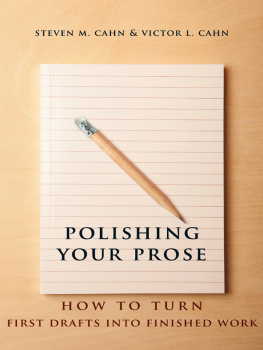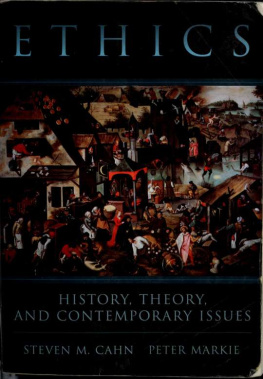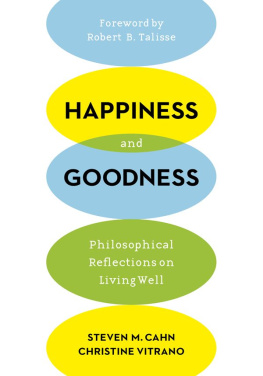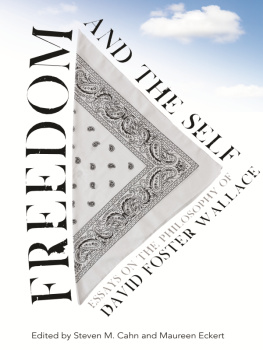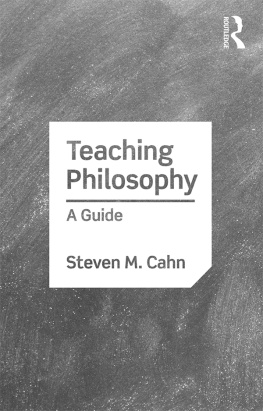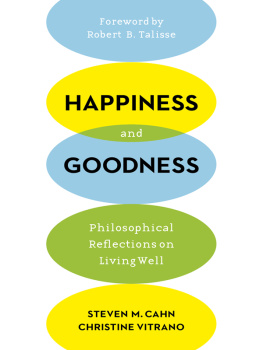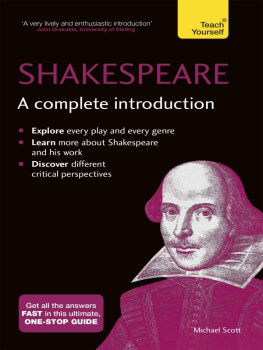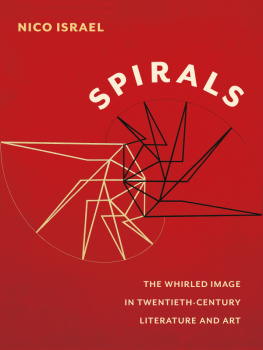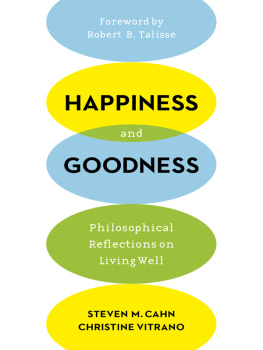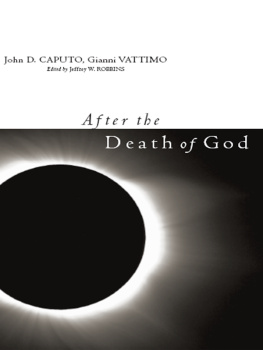[ POLISHING YOUR PROSE]
POLISHING YOUR PROSE
HOW TO TURN FIRST DRAFTS INTO FINISHED WORK
STEVEN M. CAHN & VICTOR L. CAHN
COLUMBIA UNIVERSITY PRESS NEW YORK
COLUMBIA UNIVERSITY PRESS
Publishers Since 1893
New York Chichester, West Sussex
cup.columbia.edu
Copyright 2013 Columbia University Press
All rights reserved
E-ISBN 978-0-231-53201-3
Library of Congress Cataloging-in-Publication Data
Cahn, Steven M.
Polishing your prose : how to turn first drafts into finished work / Steven M. Cahn and Victor L. Cahn.
p. cm.
ISBN 978-0-231-16088-9 (cloth : alk. paper) ISBN 978-0-231-16089-6 (pbk. : alk. paper) ISBN 978-0-231-53201-3 (electronic)
1. English languageRhetoric. 2. Report writing. 3. English languageStyle. 4. Editing.
I. Cahn, Victor L. II.Title.
PE 1408.c24 2013
808'.042dc23
2012020433
A Columbia University Press E-book.
CUP would be pleased to hear about your reading experience with this e-book at .
References to websites (URLs) were accurate at the time of writing. Neither the authors nor Columbia University Press are responsible for URLs that may have expired or changed since the manuscript was prepared.
BOOK DESIGN by VIN DANG
TO THE MEMORY OF OUR PARENTS , EVELYN BAUM CAHN AND JUDAH CAHN
[ CONTENTS ]
MARY ANN CAWS
The authors want to have made this book both short and readable: a double bravo. And it is both those things, as well as eminently useful. Before you plunge into reading this how to guide, you might well wonder what use it would serve. Even should you be without desire for improvement in your writingmore clarity, more concision, more, well, all sorts of thingsyou might actually enjoy reading these pages.
I would make the rather peculiar suggestion of starting from the endpeculiar because the tendency in reading whatever kind of document is to start at the beginning. But at the end of this book, Victor L. Cahns delightful remembering of his confronting the universe of academia is sufficiently wry, condensed, and convincing to persuade you (it does me) that this man knows how to write. Just listen to this:
Physics. My world. My thing.
Yet would the challenge be sufficient? Basic Concepts had a juvenile tone, and I was not interested in mere basics, for I was already involved in relativity.
Nothing is more appealing than obvious arrogance, especially when the author of it is clearly making fun of himself.
That is, among so many other things, what a manual of writing (or anything) necessitates: a sense of humor. Without that, all the suggestions would fall dreadfully flat. Humor serves the purpose of making us feel included in the telling; this is not a sermon but rather a discussion with us, full of helpful illustration. Amazingly, the chosen exemplary sentencesand then paragraphsseem in every case appropriate to what the authors want to prove. These goals include, for example, removing a drearily inept sentence here, eliminating there a group of words that prove utterly unnecessary, or, elsewhere, inserting a quite, as in a recognizable quotation from Oscar Wilde:
To be sure, sometimes an appropriate qualifier helps. Such is the case, for instance, when the writer seeks to be dryly ironic, as in this line from Oscar Wildes The Soul of Man Under Socialism:
All authority is quite degrading.
Without quite, the sentence languishes. With quite, it clicks.
As someone who finds choosing examples to illustrate grammatical or theoretical points particularly trying, even extraordinarily difficult, let me say how impressive these selections are. Each is exactly, precisely fitting to the point being made.
This is an entirely different talent from that of clarity, although I hasten to say that the Cahn brothers have a fine sense of the clear, and of the harmony of the whole. I wonder if this might have to do with their musical experience: Victor as a violinist, Steven as a pianist. Their ears are trained and so are sensitive to each nuance of each phrase: here too much, here too little, overall the right harmony.
We know that to write well, we have to think well. We also know that one of the best ways to proceed, in writing as in thinking, is to encounter a successful example of the kind of work we would like to undertake and complete. The Cahns are offering here first, a series of strategies, and then, an experiential guide. What I greatly enjoyed, and with some surprise, was, after an intelligent choice of practice sentences and paragraphs, the concluding decision to leave the final working out to the writers themselves. Now they, having read the rest, could go their own way.
Apart from the useful strategies and models of concision and elegance, what we have here is a narrative. As unexpected a gift as anyone could wish for, the storyline moves from advice of the apparently simplest kind (not too many adjectives, no jargon, that sort of thing) to a series of paragraphs and their repeated and repeating alteration. It aims at uncluttering, and is itself uncluttered. The conclusion is a wonderful encomium about unending change: we never stop bettering what we write.
What a grand end to the narrative: that there is no perfect end. There is no finished and final smooth overlay to the work. Thus it continues, and far beyond the student days. This book is about real things, in real time, on the real page. More important still, it is about the real writing mind, in which we absolutely have to have confidence. This book develops confidence, through its completely convincing narrative.

